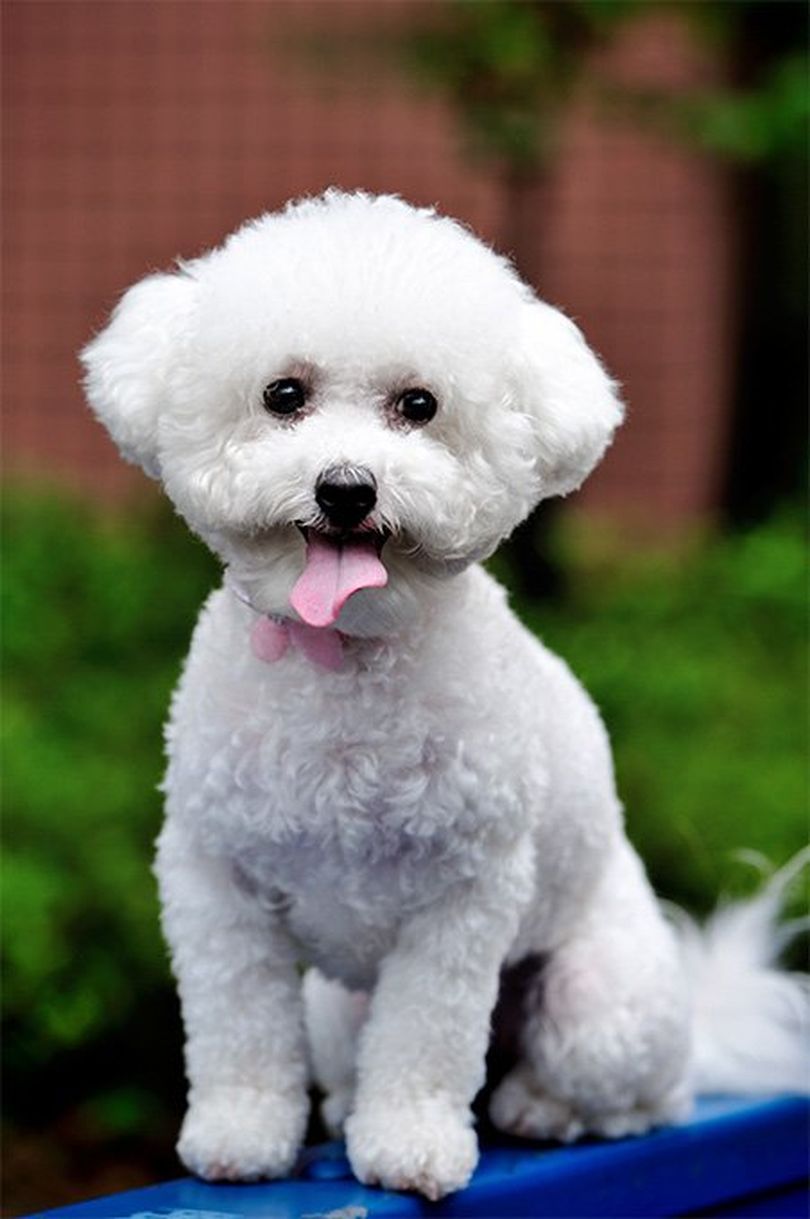Dog Breed
Bichon Frise

- Full Name
- Bichon Frise
- Alternate Names
- Bichon Tenerife or Tenerife Dog
- Your PupScore
- Take the best dog breed quiz to get your Pup Scores!
- Life Span
- 14 - 15 years
- Weight
- 12 - 18 pounds
- Description
The Bichon Frise is intelligent, loyal, and can be a good dog for first-time owners. They have been around for a long time and have quite a history. It is said that they were particularly bred in the early days as "sailing dogs" who would be able to accompany captains and their crew on long voyages.
Bichons can do relatively well on their own when left in the home (comparatively to other dogs at least), but like to be by their owner's side whenever they are around. Because of this, in addition to their trainability, they can make very good therapy dogs. They are very friendly with both dogs and people, but are docked a couple points on child friendliness only due to the fact that they are prone to getting jealous.
The Bichon Frise is one of the most hypoallergenic dogs, so can be an excellent option for anyone who gets dog allergies. Interestingly enough, they are quite prone to allergies though, particularly on their skin.- Origin
- FranceSpain
- Bred For
- As a sailing dogs, sometimes as a herding dogs
- Family Considerations
- Overall Ease of Breed
- Personality
- Home and Environment Considerations
- Physical Characteristics
Is the Bichon Frise good with children?
Is the Bichon Frise friendly with strangers?
Is the Bichon Frise friendly with other dogs?
Does the Bichon Frise like to cuddle?
Does the Bichon Frise like to play?
Does the Bichon Frise make a good service dog?
Is the Bichon Frise good for first-time owners?
How well can the Bichon Frise be trained?
Does the Bichon Frise shed a lot?
Is the Bichon Frise easy to groom?
Does the Bichon Frise need a lot of exercise?
How smart is the Bichon Frise?
How much does the Bichon Frise bark? Does the Bichon Frise bark too much?
Is the Bichon Frise a good guard dog?
Is the Bichon Frise good at staying alone? Is the Bichon Frise independent?
Is the Bichon Frise a good apartment dog?
How big is the Bichon Frise?
How much does the Bichon Frise tolerate hot weather? When is it too hot for a Bichon Frise?
How much does the Bichon Frise tolerate cold weather? When is it too cold for a Bichon Frise?
Does the Bichon Frise try to run away?
Is the Bichon Frise a healthy dog? The health of a Bichon Frise should be measured not just by how many years they live, but also by how many health issues they've had. It is important to know which health conditions your breed is prone to- hip problems, eye problems, bloating, and arthritis are all common dog health problems.
How energetic is the Bichon Frise?
How much does the Bichon Frise drool?
Does the Bichon Frise have a large prey drive? Does the Bichon Frise like to chase birds, cats, and other small animals?
Is the Bichon Frise atheltic?
 Dog
Dog- Non-Sporting
- Bichon
- Bichon Frise
Bichon Frises for adoption
Similar Breeds



